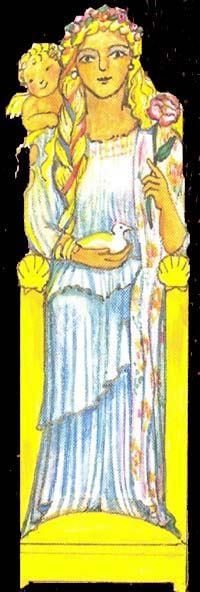
Hermaphroditus (also the namesake of the word hermaphrodite), the son of Hermes and Aphrodite, is considered the god of hermaphrodites and intersex people. DeVun contrasts this with an Artistotelian view of intersex, which argued that "hermaphrodites were not an intermediate sex but a case of doubled or superfluous genitals", and this later influenced Aquinas. In another version, Tiresias' sex-change was caused by an argument between Zeus and Hera, on which they debated whether a male or a female had greater pleasure in sex, so they transformed him into a female to experiment.Īccording to Leah DeVun, a "traditional Hippocratic / Galenic model of sexual difference – popularized by the late antique physician Galen and the ascendant theory for much of the Middle Ages – viewed sex as a spectrum that encompassed masculine men, feminine women, and many shades in between, including hermaphrodites, a perfect balance of male and female".

Later the sentence was remitted, due to either trampling on the mating snakes or avoiding them, and he became male again. Tiresias, on the other hand, became female because he struck a couple of copulating snakes, displeasing Hera, who punished him by transforming Tiresias into a woman. Mestra, however, had the ability to change her shape voluntarily, instead of staying in male form like Caeneus and other instances above.

Later in life, manhood was granted through the blessing of a deity ( Juno/ Hera in Iphis' case and Leto in Leucippus').Ĭaeneus and Mestra, each of who was a mate of a god (Caeneus was a rape victim of Poseidon/ Neptune and Mestra was a lover of the same god), were granted manhood by the said god. In the cases of Iphis and Leucippus, the woman's mother was pressured (by her husband) to bear a male child so the protagonist was forced to impersonate a male from birth. There was also a motif of a woman needing to disguise herself as a male and later being transformed into a biological male by mysterious forces (mainly the gods). The reason for the transformation varies, as in the case of Siproites (Σιπροίτης), a hunter from Crete, who was transformed to a woman by Artemis after having seen the goddess bathing/nude.

The sex-change theme also occurred in classical mythology. In the poetry of Sappho, Aphrodite is identified as the patron of lesbians. Eros is also part of a trinity of gods that played roles in homoerotic relationships, along with Heracles and Hermes, who bestowed qualities of beauty (and loyalty), strength, and eloquence, respectively, onto male lovers. Other gods are sometimes considered patrons of homosexual love between males, such as the love goddess Aphrodite and gods in her retinue, such as the Erotes: Eros, Himeros and Pothos. He is also called "the champion of male love" by Andrew Callimach. Sexuality Homosexuality and bisexuality Īpollo, the god of sun and music, is considered the patron of same sex love, as he had many male lovers and was often invoked to bless homosexual unions.

In comparison, lesbian relationships are rarely found in classical myths. These myths have been described as being crucially influential on Western LGBT literature, with the original myths being constantly re-published and re-written, and the relationships and characters serving as icons. In addition, there are instances of cross-dressing, and of androgyny which has been grouped under the acronym LGBTQ+. Greco-Roman mythology features male homosexuality in many of the constituent myths.


 0 kommentar(er)
0 kommentar(er)
